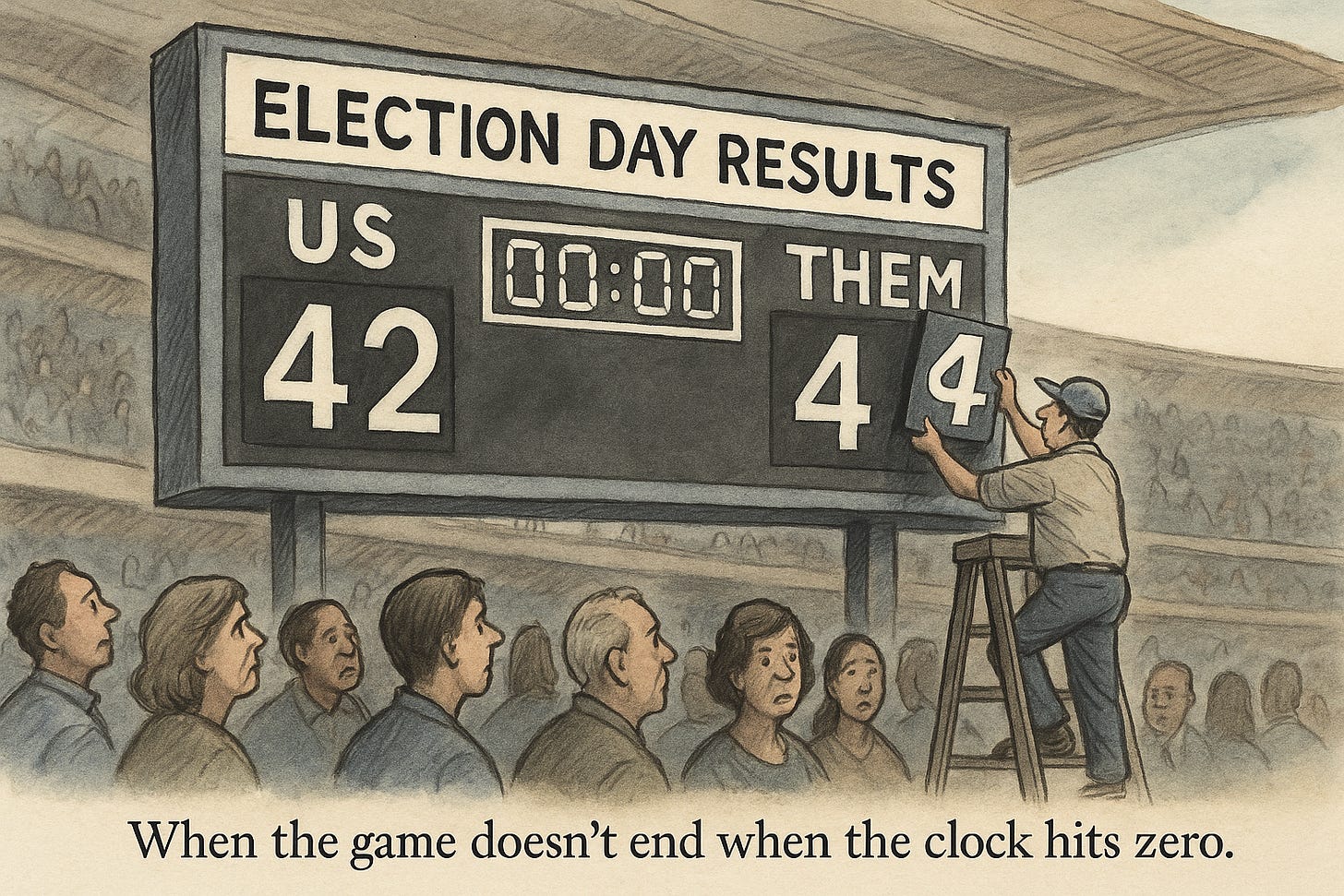Supreme Court Will Decide: Are Votes Received After Election Day Unconstitutional? Potential Significant Impact for California
Yesterday, the nation’s top Court said it would hear a key election-law case in its upcoming term.
For breaking news items like this, the hard news is free for everyone. But the real value here — what this could actually mean for how votes are counted in California — is below the paywall. Paid subscribers can upgrade below, and you can even start with a free weekly trial.
Read Time: 6 min
What the Justices Just Agreed to Decide
Yesterday, the Supreme Court stepped directly into the national debate over how long ballots should be counted after Election Day. The Court agreed to hear Watson v. Republican National Committee, a case out of Mississippi that challenges whether states may accept and count mail ballots that arrive after Election Day, as long as they were mailed on time.
Mississippi currently allows mail ballots postmarked by Election Day to be counted for up to five business days after the election. Earlier this year, the Fifth Circuit Court of Appeals struck that down, ruling that federal law requires ballots in federal races to be received by the end of Election Day. Mississippi appealed, and now the Supreme Court will make the final call.
This matters for California because we count ballots that arrive up to seven days after the election. Anyone who followed the 2022 Porter/Baugh congressional race — or the Orange County Supervisor races — remembers how the numbers on election night told one story, only to shift slowly in the days that followed. No one had to allege misconduct for uncertainty to build. The structure of the process did that on its own.
Suppose the Court rules that ballots must be received by Election Day for federal offices. In that case, California may be forced to either change its deadlines or operate two separate election systems simultaneously. That isn’t just a paperwork detail. It ultimately comes down to whether voters believe elections are decided while ballots are being cast — or afterward.
Bottom line: the Court granted review. A ruling is expected by late June, months before the 2026 midterms.
So now that you’ve heard the big news about the Supreme Court taking up Watson v. Republican National Committee, the real question is: what does this mean, and how could it affect the way elections are run — especially here in California? Below the paywall, I break down the implications that most major outlets are glossing over.
Here’s what you’ll find below the paywall…
• How this case could directly impact California’s 7-day mail ballot rule
• Whether states may be forced to run two election systems at once
• What recent close California races teach about late-arriving ballots
• Why public trust is central to this dispute, not just legal interpretation
• My argument for why Election Day should mean Election Day again
Upgrade - you can even try it for a week for free, and get the rest of this column right now!
Keep reading with a 7-day free trial
Subscribe to FlashReport Presents: So, Does It Matter? On CA Politics! to keep reading this post and get 7 days of free access to the full post archives.



